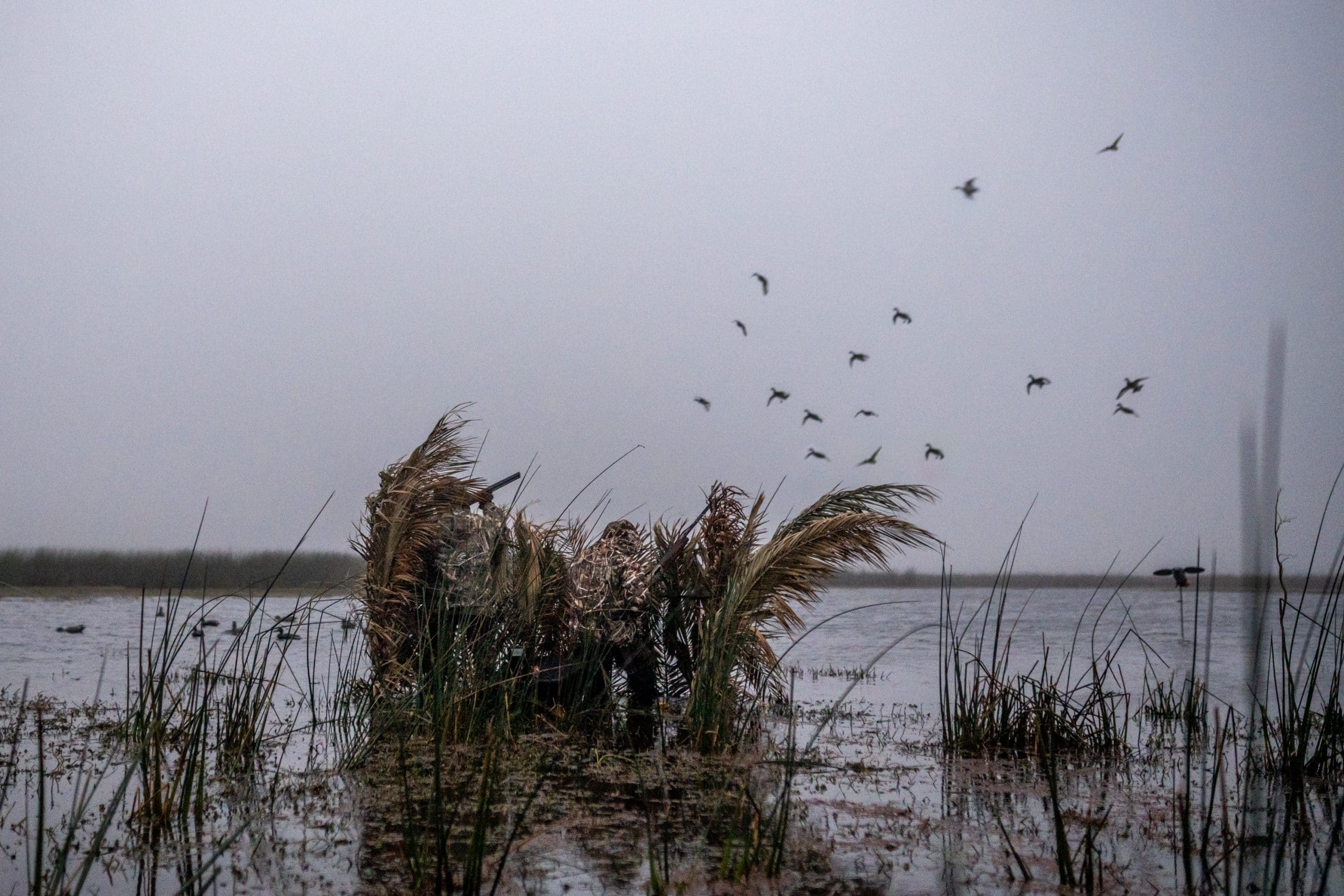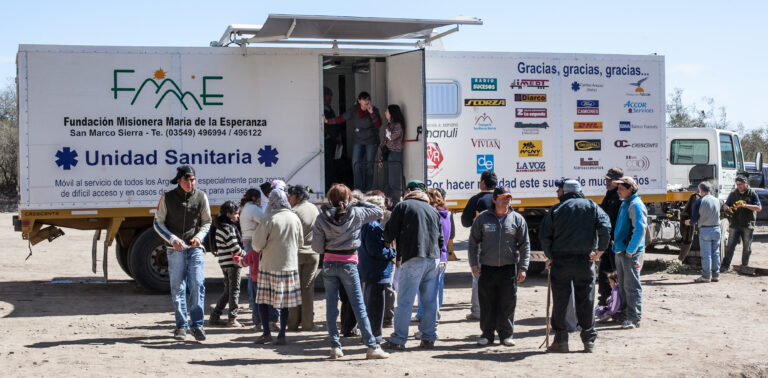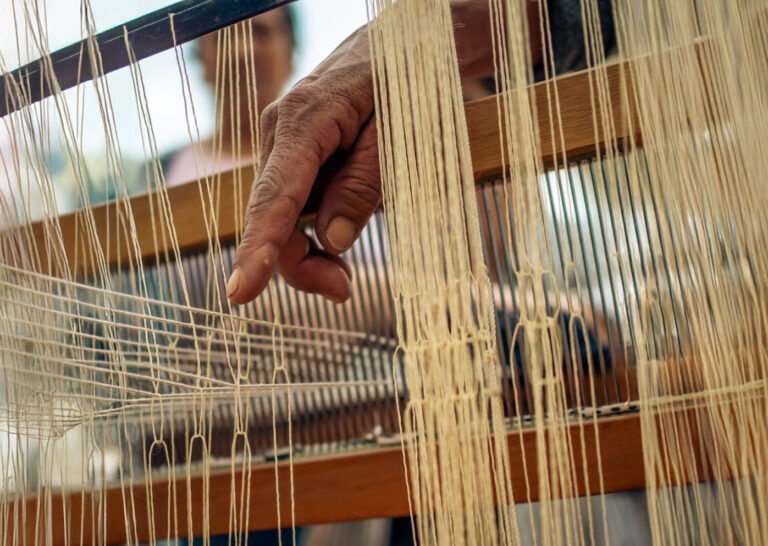By Doug Larsen, For The Retriever Journal.
Anyone who has read more than two magazines in their life has probably seen one of those articles that is a list of tips to make your hunting easier. I see them all the time. The trouble with them is, if you have been hunting waterfowl for more than about a year, most of the tips are pretty remedial. You have probably already figured out how to turn your water-keel decoys into weighted keels by plugging the holes in the keel and filling it with sand.
You probably know to carry small-sized shots to swat cripples, and you probably know to make your goose spread more realistic by facing your goose decoys in different directions, and not have them all facing into the wind. These are some of the basic tips that are offered up in the usual waterfowl tips story, and I’m sure they are helpful to those who may be new to the game. But one of the things that fascinates me about duck and goose hunting is that you never, ever, stop learning. I like to think that I was a better hunter last season than I was the year before, and I hope to be smarter this season.
So, I have thought about some more advanced hunting tips that have helped me over the years and put them together here. Some may apply to your situation-some not, but if even one of them makes the light bulb go on over your head then you’ll be a little smarter this season too, and that is a good thing.
1) Patching things— you know all about “Goop” and tire patches and things like that. Trouble is, any liquid patching material takes time to dry. That is fine at home, but not in the duck marsh. To patch waders, a ripped boat cushion, or a shot decoy while you are sitting in the boat, carry a disposable lighter, and a few sticks of hot glue. Melt the glue stick, drip or smear the hot glue over the hole, and it is patched and dried in less time than it took me to type this.
2) The truck keys— I learned the hard way that if you lose the truck keys in a duck marsh, they are going to stay lost, and nothing louses up a hunting day like not having a ride home. So I don’t take them out with me anymore. If I’m hunting a place that is pretty remote, I just hide the keys somewhere near the truck. I’ll set them behind a tire or hang them from the frame. I will always tell my hunting partner where they are just in case. If you launch at a public ramp, and you are not comfortable just leaving your keys, the other thing you might want to do is put your keys on a carabineer and hang them from your call lanyard, or put your keys on a separate lanyard and wear that around your neck. Almost any around-your-neck option is better than loose in a pocket. Some trucks have a keypad on the door, and if yours does, you can just leave them inside.
3) Dry clothes in a small space— I used to keep a change of clothes in a bag in my truck. Eventually, I’d get tired of working around it, and very soon after the day I removed the bag, I fell in, got soaked, and needed a change of clothes. Enter the era of the vacuum bag. You have seen them on television, and you can buy the bag at the dollar store. I put pants, a shirt, and a down jacket in the bag, and vacuum the air out. Now you have a bag that fits behind the seat and takes up about as much space as a phone book. The bag is small enough that you can take it along in a blind bag or boat bag if you want to have a change closer at hand.
4) Silent spinner— you may dislike spinning winning decoys as I do, or you may take one on every hunt. Regardless, they used to be effective if they ran constantly, now ducks are wise to them, and they work better if used intermittently. Trouble is if ducks are working and you turn your’s on, many times the battery will wobble or shake, and the ducks will hear the battery clunking around in there. Game over. So, take one of those neoprene beer can koozies, slide it over the battery, and then slide the battery into the holder. Problem solved.
5) Safety first and last— for several years I hunted with a guy who always showed me his open action every time we stopped hunting and before we cased the guns or put them away. I loved the idea, and I made it a habit. It is just one more measure of safety and I do it now with even the most seasoned hunters. Unload your gun, then tell your partner, to look as you show him the open bolt and the magazine plug of your autoloader. Make him do the same thing. Make it a habit.
6) The first bird— all other things being equal, the first duck that comes to your decoys will tell you exactly how the rest of the ducks will work that day. I have seen this often enough to know that it is nearly always true. So, whether you kill that first duck or not, doesn’t matter, but you should understand where he was planning to land either way. If your first duck does not come to the hole but lands at the head of the spread, then either move the hole or move yourself to the head of the spread. If fifty more ducks come to the same decoy spread, they will all go there. It is better to adjust after bird #1 than just hope something changes. It usually doesn’t.
7) Clean decoys— I’m a big believer that clean decoys show up better, and work better. Over the years, I have searched for something to clean my duck decoys about midway through the season when they all start to turn mud brown. I have tried soap and water, power washing, Mr. Clean, and a few other solutions, but they all involved scrubbing or work. Since I generally try to avoid scrubbing and work, I’m happy to tell you about spray tire cleaner foam. Buy some, spray it on, and hunt. Your decoys will look terrific. Several brands offer spray foam, try to avoid the super-glossy stuff. This stuff is a total game changer in decoy cleaning.
8) Five Cent choke tube wrench— I hate a choke tube that works loose. I’m constantly checking mine, but I don’t change chokes very often, so I don’t carry a wrench. I learned a couple years ago that a nickel will work on almost any choke tube, and will tighten it right up. If you pinch the nickel, you can easily get the tube hand-tight, and that is all you need. By the way, never, ever, tighten a tube while the gun is loaded.
9) The shell belt— this is another handy tip that I discovered by hunting with others. I never used or carried a cartridge belt, because I always felt wearing one made me look like Pancho Villa. But they are the handiest deal you can have for storing shotgun shells. I have tried leaving shells in the box, and that almost always ends in soggy cardboard and shells all over the boat floor or worse, shells in the drink. You can buy a shell belt for 8 bucks. Load it with a box of shells, wear it, hang it from the front wall of the blind, or lay it on a boat seat. If you need a shell in a hurry—which is often the case if a cripple is making escape-your shells are right there. Put the belt in your blind bag if you are not the type to wear it.
10) NeverWet— This is an amazing new product offered by Rust-Oleum. It can now be purchased at major hardware stores. NeverWet is a liquid repelling treatment that may be the greatest thing for duck hunters since the pump shotgun. Spray on a base coat and let it dry, then spray on a top coat and let it dry too. Water and mud will slide off anything that is coated with this stuff. To give you an idea of what this product will do, if you treat a paint roller pan with NeverWet, you can pour leftover paint back into the can, and not leave a drop of paint in the pan. Imagine the uses for this stuff in duck hunting? They claim that if you treat your cell phone (inside and out) it will be dunk proof. Spray your wader boots, and mud won’t stick to them. The product leaves a frosted haze on surfaces, but I will experiment with full-bodied field decoys this fall—imagine a duck or goose hunt in the driving snow- but you don’t have to clean the decoys off, because the snow will not stick to them?
I hope some of these tips will help you hunt smarter, drier, and safer this season.





